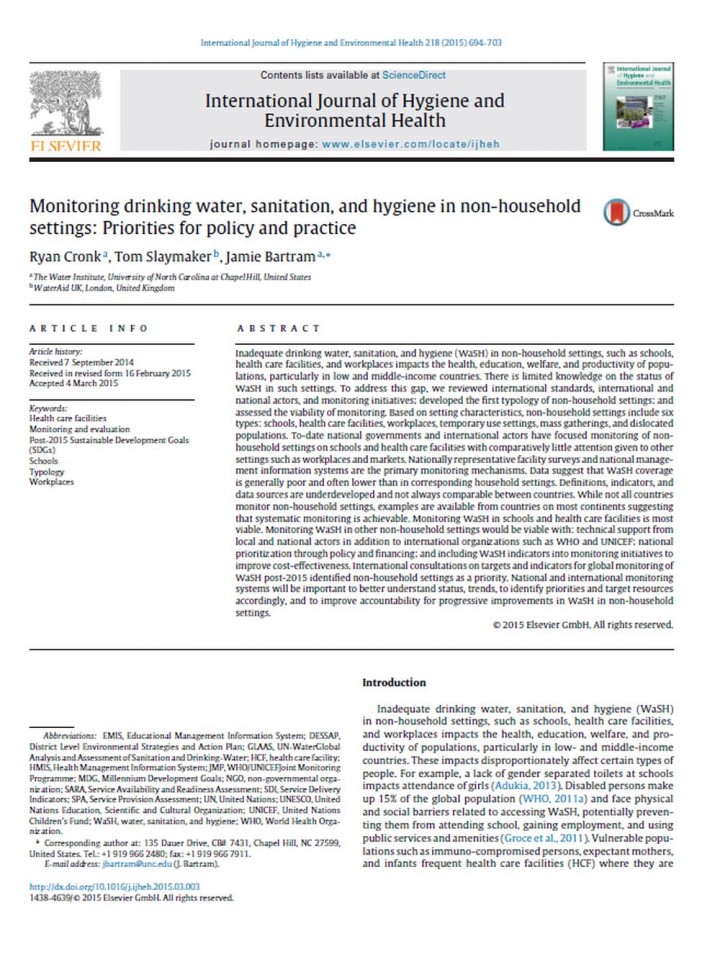Monitoring drinking water, sanitation, and hygiene in non-household settings: priorities for policy and practice - International journal of hygiene and environmental health
Cronk, R., Slaymaker, T., Bartram, J. (2015)

Published in: 2015
Pages: 10
Publisher:
International Journal of Hygiene and Environmental Health, Volume 218, Issue 8, November 2015, Pages 694–703, doi:10.1016/j.ijheh.2015.03.003
Author:
Cronk, R., Slaymaker, T., Bartram, J.
Uploaded by:
SuSanA Admin
Partner profile:
common upload
5285 Views
0 Downloads
Inadequate drinking water, sanitation, and hygiene (WaSH) in non-household settings, such as schools, health care facilities, and workplaces impacts the health, education, welfare, and productivity of populations, particularly in low and middle-income countries. There is limited knowledge on the status of WaSH in such settings. To address this gap, we reviewed international standards, international and national actors, and monitoring initiatives; developed the first typology of non-household settings; and assessed the viability of monitoring. Based on setting characteristics, non-household settings include six types: schools, health care facilities, workplaces, temporary use settings, mass gatherings, and dislocated populations. To-date national governments and international actors have focused monitoring of non-household settings on schools and health care facilities with comparatively little attention given to other settings such as workplaces and markets. Nationally representative facility surveys and national management information systems are the primary monitoring mechanisms. Data suggest that WaSH coverage is generally poor and often lower than in corresponding household settings. Definitions, indicators, and data sources are underdeveloped and not always comparable between countries. While not all countries monitor non-household settings, examples are available from countries on most continents suggesting that systematic monitoring is achievable. Monitoring WaSH in schools and health care facilities is most viable. Monitoring WaSH in other non-household settings would be viable with: technical support from local and national actors in addition to international organizations such as WHO and UNICEF; national prioritization through policy and financing; and including WaSH indicators into monitoring initiatives to improve cost-effectiveness. International consultations on targets and indicators for global monitoring of WaSH post-2015 identified non-household settings as a priority. National and international monitoring systems will be important to better understand status, trends, to identify priorities and target resources accordingly, and to improve accountability for progressive improvements in WaSH in non-household settings.
Bibliographic information
Cronk, R., Slaymaker, T., Bartram, J. (2015). Monitoring drinking water, sanitation, and hygiene in non-household settings: priorities for policy and practice - International journal of hygiene and environmental health. International Journal of Hygiene and Environmental Health, Volume 218, Issue 8, November 2015, Pages 694–703, doi:10.1016/j.ijheh.2015.03.003
Filter tags
English Recommended by SuSanA (other than SuSanA publications) Sustainable WASH in institutions and gender equality (WG7)















